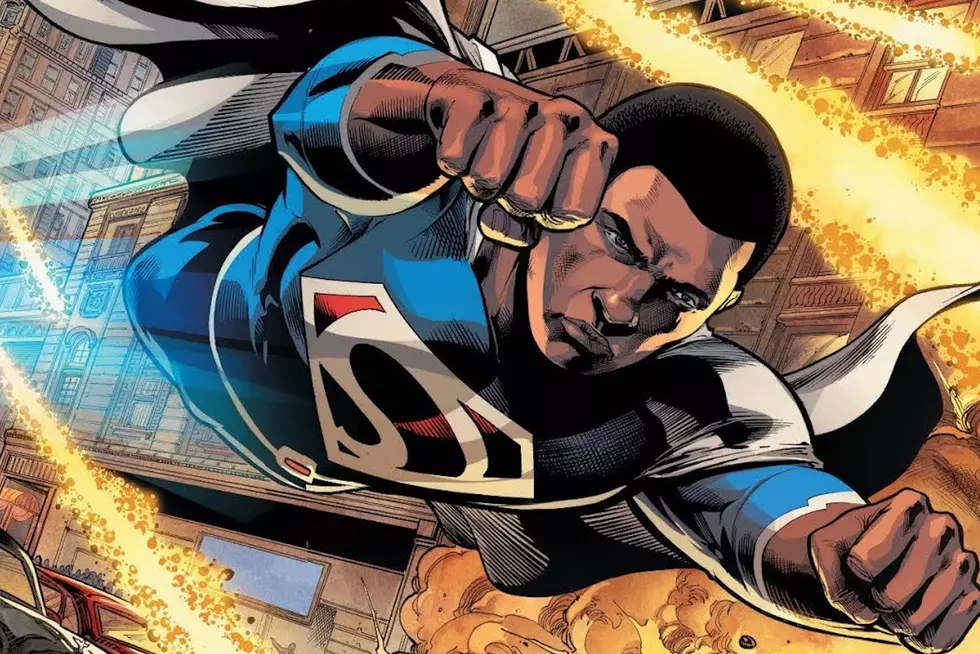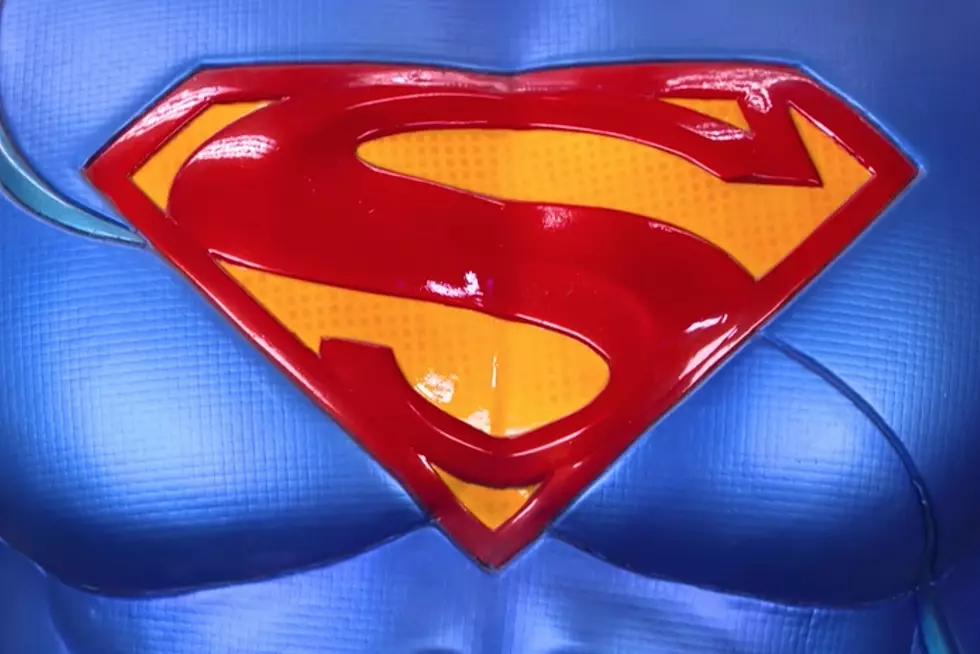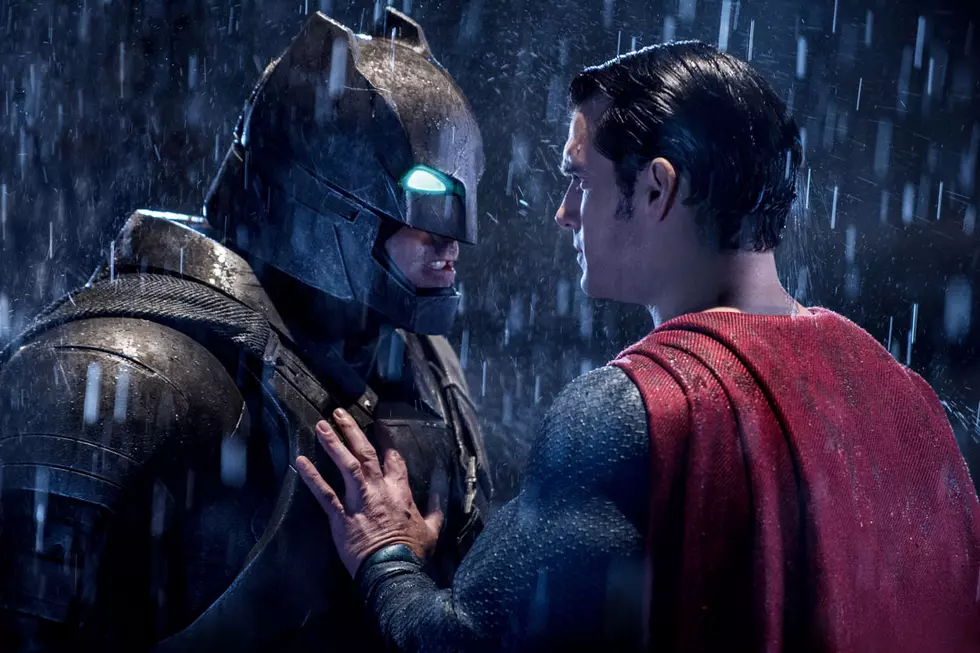
Behold the Check DC Comics Wrote in 1938 for the Exclusive Rights to Superman
An astonishing artifact from the beginnings of American comics history was unearthed this week, the check written by DC Comics to Jerry Siegel and Joe Shuster for the exclusive rights to their then-new character, Superman. The young comic book creators sold Superman to the publisher for a mere $130 (split between the two of them). Their character would of course go on to inspire an entire genre of superhero fiction across all mediums and generate millions upon millions of dollars in sales of comic books, movie tickets and other countless forms of merchandise.This hugely important document was released into the world Monday morning by The Infinite Horizon writer Gerry Duggan in the form of a digital image via Twitter, where it went viral among comics industry users. Among them was Invincible Iron Man and Casanova writer Matt Fraction, who observed that Detective Comics Publisher Jack Liebowitz, who signed the check, misspelled both of Siegel and Shuster's names. The careless error was among the first of many indignities the pair would suffer in their dealings with Liebowitz, DC Comics and later-DC parent Time Warner, the corporation whom Siegel's heirs continue to battle in copyright court even now.

The check was obtained by Stephen Fishler of ComicConnect.com and Metropolis Comics, companies specializing in rare comics collectibles. The check will be made available for auction in November along with other items once owned by Jerry Siegel. Rob Reynolds, ComicConnect's Director of Consignments, tells CA that the check will likely be auctioned early 2012. Fishler issued Bleeding Cool a statement discussing the provenance of the check and the various amounts and stamps that appear on it:
This March 1, 1938 Detective Comics check, signed by Jack Liebowitz is made payable to Jerome Seigel and Joe Schuster. (You would think that the payment for a character as important as Superman, DC would have spelled Siegel and Shuster's name correctly!) The check, in the amount of $412, includes an accounting of the items being paid for. At the very top is "Superman $130," Next is the payment for the June 1938 Detective Comics at $210. Following that are payments of $36 each for Adventure Comics and More Fun. It would also appear that DC Comics used this check as evidence in their 1939 lawsuit against Victor Fox, given the fact that the evidence stamp from this case is clearly visible on the reverse of the check, as are the actual endorsement signatures of Siegel and Shuster themselves.
The 1939 lawsuit to which Fishler refers is that of Detective Comics, Inc. v. Bruns Publications, Inc., in which DC successfully argued that a competing publisher's character called Wonder Man infringed upon the Superman copyright. The case is regarded as the first comic book copyright lawsuit, making Siegel and Shuster's check that much more significant a piece of American comics history.
Additionally, Fischler observed that the date of the check, March 1, 1938, is also the date atop the original contract between Siegel, Shuster and DC that transfered ownership of the Superman character to the publisher in exchange for $130.

(Image via Jeff Trexler)
In the years subsequent to signing the above contract and cashing the above check, Siegel and Shuster would attempt to regain via the courts some kind of ownership of Superman and a more equitable share in the enormous profits generated by Superman comic books as well as DC's exploitation of the character in the broader marketplace. The pair were at first unsuccessful and found themselves fired, unrecognized for their creation and consequently destitute (Shuster is alleged in comics historian Craig Yoe's book, Secret Identity, to have illustrated a series of underground fetish comics just to make ends meet). Additional lawsuits, settlements and copyright extensions followed in the decades hence. Those proceedings have been protracted and sometimes arcane, but Siegel and Shuster's names were eventually restored to the credits pages of all Superman comics, and Siegel's heirs were ultimately successful (pending appeal) in recapturing half of the copyright to Superman in 2008.
As we saw in July when a New York federal judge decided the heirs of Jack Kirby -- the creator and co-creator of such enduring Marvel Comics superheroes like the Fantastic Four, X-Men, the Hulk and more -- had no legal claim to the copyrights to those characters, comic book readers continue to debate the validity of a creator's estate pursuing monies or other rewards or damages for work created under the strict work-for-hire conditions that were once commonplace in the industry. A deal is a deal, say some readers and pundits, while others claim there's a moral imperative to paying such creators' heirs a substantial settlement.
Whatever one thinks of the cold legal mechanics behind the saga of Superman's ownership, one cannot escape the sense of calamity and dread that comes with just laying eyes upon Liebowitz's faded 73-year-old check. The name of the world's greatest superhero and one of the most lucrative fictional characters ever devised is scribbled so plainly in the memo next to an amount that reads "$130," like a check you or I might write to pay our utility bills. In an industry where fictional heroes like Superman are regularly talked about as if they're godlike beings manifested from humanity's collective consciousness or something similarly grandiose and fanciful, this cold, stark document, with all that we know about Siegel and Shuster's lives imbued within it, is something almost too real to bear.
More From ComicsAlliance











